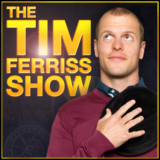.lightweight-accordion { border: 1px solid #ccc; border-radius: 4px; margin: 10px 0; } .icon-container { display: flex; ...
.lightweight-accordion { border: 1px solid #ccc; border-radius: 4px; margin: 10px 0; } .icon-container { display: flex; ...
.lightweight-accordion { border: 1px solid #ccc; border-radius: 4px; margin: 10px 0; } .icon-container { display: flex; ...
.lightweight-accordion { border: 1px solid #ccc; border-radius: 4px; margin: 10px 0; } .icon-container { display: flex; ...
.lightweight-accordion { border: 1px solid #ccc; border-radius: 4px; margin: 10px 0; } .icon-container { display: flex; ...
.lightweight-accordion { border: 1px solid #ccc; border-radius: 4px; margin: 10px 0; } .icon-container { display: flex; ...
.lightweight-accordion { border: 1px solid #ccc; border-radius: 4px; margin: 10px 0; } .icon-container { display: flex; ...
.lightweight-accordion { border: 1px solid #ccc; border-radius: 4px; margin: 10px 0; } .icon-container { display: flex; ...
.lightweight-accordion { border: 1px solid #ccc; border-radius: 4px; margin: 10px 0; } .icon-container { display: flex; ...
.lightweight-accordion { border: 1px solid #ccc; border-radius: 4px; margin: 10px 0; } .icon-container { display: flex; ...
Dr. Keith Baar is a Professor at the University of California, Davis in the Department of Physiology and Membrane Biology. During his Ph.D. studies, his ...
.lightweight-accordion { border: 1px solid #ccc; border-radius: 4px; margin: 10px 0; } .icon-container { display: flex; ...
.lightweight-accordion { border: 1px solid #ccc; border-radius: 4px; margin: 10px 0; } .icon-container { display: flex; ...
.lightweight-accordion { border: 1px solid #ccc; border-radius: 4px; margin: 10px 0; } .icon-container { display: flex; ...
.lightweight-accordion { border: 1px solid #ccc; border-radius: 4px; margin: 10px 0; } .icon-container { display: flex; ...
.lightweight-accordion { border: 1px solid #ccc; border-radius: 4px; margin: 10px 0; } .icon-container { display: flex; ...
.lightweight-accordion { border: 1px solid #ccc; border-radius: 4px; margin: 10px 0; } .icon-container { display: flex; ...
.lightweight-accordion { border: 1px solid #ccc; border-radius: 4px; margin: 10px 0; } .icon-container { display: flex; ...
.lightweight-accordion { border: 1px solid #ccc; border-radius: 4px; margin: 10px 0; } .icon-container { display: flex; ...
.lightweight-accordion { border: 1px solid #ccc; border-radius: 4px; margin: 10px 0; } .icon-container { display: flex; ...
- « Previous Page
- 1
- 2
- 3
- 4
- 5
- …
- 24
- Next Page »


